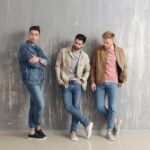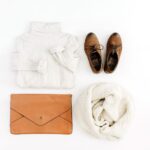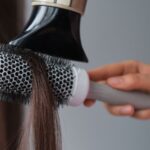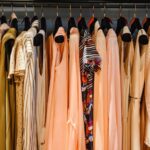The 1950s fashion era continues to captivate designers, fashion enthusiasts, and pop culture. Post-World War II, the decade was marked by vibrant changes in clothing, lifestyle, and society. It was a time when fashion played a crucial role in self-expression, and the clothing styles reflected optimism and a new-found freedom.
The Rise of 1950s Fashion
The 1950s marked a significant shift in the fashion world, where classic elegance met innovative designs. After years of wartime rationing, people were eager to indulge in luxury fabrics, fuller silhouettes, and a more extravagant approach to dressing. Designers like Christian Dior, Coco Chanel, and Balenciaga led the way, introducing styles that would leave a lasting impact.
At the heart of 1950s fashion was the concept of femininity. Women’s clothing became more structured, with defined waistlines and full skirts, while men’s fashion embraced clean-cut suits, narrow ties, and bold colors.
Key Styles of 1950s Fashion
1950s fashion saw several iconic styles, many of which remain popular today. Here’s a rundown of some of the most notable trends:
- The Hourglass Silhouette:
One of the defining looks of the 1950s, the hourglass shape emphasized a nipped-in waist and a voluminous skirt. This style was often seen in day dresses, evening gowns, and even casual wear. The look was all about celebrating curves and femininity. - Pencil Skirts and Sheath Dresses:
While full skirts dominated the fashion scene, pencil skirts and sheath dresses offered a sleeker, more sophisticated alternative. These form-fitting garments were perfect for office wear or formal occasions, accentuating the wearer’s natural shape. - High-Waisted Pants and Capris:
Women in the 1950s didn’t just wear skirts and dresses; high-waisted pants and capris also became a staple. Paired with tucked-in blouses or cropped tops, these pants offered a casual yet polished look for everyday wear. - Rockabilly and Greaser Styles:
The rock and roll culture of the 1950s brought with it the rebellious rockabilly and greaser fashion trends. Leather jackets, jeans, and bandanas were popular among men, while women embraced polka dots, gingham prints, and bold, playful accessories.
Accessories that Defined the Decade
No 1950s outfit was complete without the right accessories. The decade saw the rise of bold statement pieces and elegant finishing touches:
- Cat-Eye Sunglasses:
A symbol of 1950s fashion, cat-eye sunglasses were often worn by Hollywood stars and fashion icons. The exaggerated, pointed frames added a touch of glamour to any look. - Scarves and Headbands:
Women in the 1950s frequently styled their hair with scarves and headbands. These accessories were both practical and fashionable, often worn with curls or an updo. - Gloves:
Gloves were a must-have accessory for women during the 1950s, especially for formal events. Whether short or opera-length, gloves added an air of sophistication to any outfit. - Pearls and Costume Jewelry:
Pearls became a symbol of elegance in the 1950s. Women frequently adorned their outfits with pearl necklaces, earrings, and bracelets. Costume jewelry also saw a surge in popularity, allowing women to experiment with colorful, bold designs.
Men’s Fashion in the 1950s
While much of 1950s fashion focuses on women, men’s clothing also experienced its own evolution. The decade introduced a more relaxed and youthful approach to dressing for men.
- Slim-Fit Suits:
Men’s suits in the 1950s became more tailored, with a focus on slim, structured silhouettes. Jackets were shorter, and trousers were tapered, creating a clean, polished look. - Casual Wear:
Casual styles like polo shirts, knitwear, and loafers became popular for men during the 1950s. These laid-back looks were perfect for leisure activities and weekends. - Greaser Style:
Inspired by the rock and roll culture, the greaser look became synonymous with rebellion. Leather jackets, white t-shirts, and jeans were essential pieces for any young man looking to embody the cool, carefree attitude of the time.
Famous 1950s Fashion Icons
Fashion in the 1950s was heavily influenced by Hollywood stars and public figures. Some of the most notable style icons of the time include:
- Marilyn Monroe:
Known for her hourglass figure and sultry looks, Marilyn Monroe epitomized the glamour of 1950s fashion. From her iconic white halter dress in The Seven Year Itch to her fitted pencil skirts, Monroe’s style remains legendary. - Audrey Hepburn:
Audrey Hepburn’s classic, minimalist style was the epitome of elegance. Her role in Breakfast at Tiffany’s made the little black dress a staple in every woman’s wardrobe. - James Dean:
As a poster boy for the greaser look, James Dean’s leather jacket, white t-shirt, and jeans became a symbol of youthful rebellion. His iconic style is still emulated by fashion lovers today. - Elvis Presley:
The King of Rock and Roll not only influenced music but also left a lasting mark on 1950s fashion. Elvis’s flamboyant stage outfits, including his famous jumpsuits and slicked-back hair, set trends that would endure for decades.
FAQs About 1950s Fashion
What fabrics were popular in the 1950s?
The 1950s saw the rise of new synthetic fabrics like nylon, rayon, and acrylic, which were lightweight and easy to care for. However, natural fabrics like cotton, wool, and silk were still widely used.
How did 1950s fashion differ for men and women?
Women’s fashion in the 1950s focused on creating a feminine silhouette with full skirts, fitted bodices, and high heels. Men’s fashion, on the other hand, emphasized a sleek, polished look with slim-fit suits and tailored trousers.
What is the 1950s fashion known for?
The 1950s fashion is known for its iconic hourglass silhouette for women, rockabilly style, and the rise of casual wear for men. Accessories like cat-eye sunglasses and pearls also defined the decade.
How did Hollywood influence 1950s fashion?
Hollywood had a significant impact on fashion in the 1950s. Stars like Marilyn Monroe, Audrey Hepburn, and James Dean became style icons, and their outfits were emulated by fans worldwide.
Is 1950s fashion still relevant today?
Absolutely! Many elements of 1950s fashion, such as high-waisted pants, pencil skirts, and vintage accessories, continue to inspire modern designers and fashion trends.
Conclusion: Why 1950s Fashion Remains Iconic
The 1950s was a decade of bold changes and enduring styles. From the hourglass silhouette to the rebellious greaser look, fashion from this era continues to influence modern wardrobes. Whether you’re drawn to the elegance of Audrey Hepburn or the rock and roll edge of Elvis Presley, 1950s fashion offers something timeless for everyone.
Authoritative Links:
- Dior’s Influence on Fashion in the 1950s: www.dior.com
- History of Women’s Fashion: www.vintagefashionguild.org
- 1950s Fashion Trends: www.history.com







